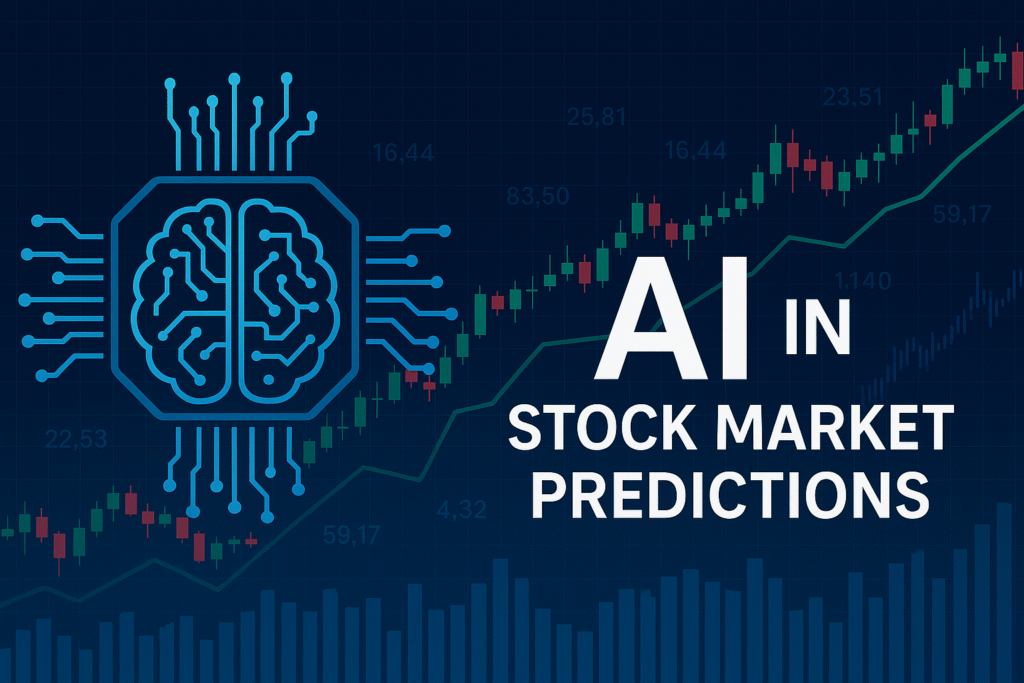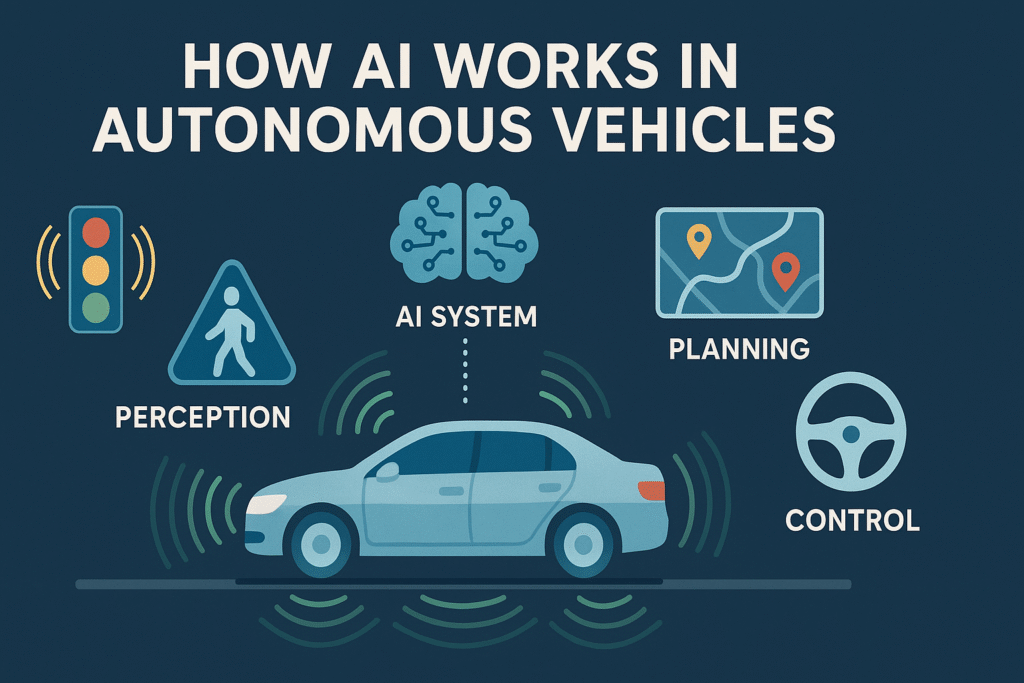📈 AI in Stock Market Predictions: 7 Game-Changing Ways AI Is Disrupting Trading in 2025
Discover how AI in stock market predictions is changing investing. Learn how machine learning models analyze data, predict trends, and automate trading—by AiBlogQuest.com.
🤖 Introduction: Can AI Really Predict the Stock Market?
In 2025, AI in stock market predictions is no longer science fiction—it’s part of serious trading strategies. From hedge funds to retail investors, everyone is tapping into AI’s ability to:
-
Analyze massive datasets
-
Spot patterns invisible to humans
-
Make real-time predictions and automated trades
At AiBlogQuest.com, we explore how AI is transforming market forecasting and why it’s one of the most disruptive forces in financial technology today.
🔍 How AI Predicts the Stock Market
AI doesn’t “guess” stock movements—it learns from data.
It uses:
-
Machine learning to detect patterns from historical prices
-
Sentiment analysis to interpret financial news and tweets
-
Time-series forecasting models (ARIMA, LSTM, transformers)
-
Neural networks to simulate human decision-making
The result? Informed, data-driven predictions faster than any analyst.
📊 7 Real-World Applications of AI in Stock Market Predictions
1. 💡 Pattern Recognition in Historical Data
AI models sift through years of price charts to:
-
Identify bullish/bearish patterns
-
Correlate indicators (like RSI, MACD)
-
Recognize trend reversals before they occur
✅ Example: Kavout and Trading Technologies use AI to spot trade setups.
2. 🧠 Sentiment Analysis on News and Social Media
AI reads:
-
News headlines
-
Earnings reports
-
Tweets and Reddit threads
It assigns sentiment scores and reacts to market-moving stories before they go viral.
✅ Tools like Accern and MarketPsych offer this to hedge funds and investors.
3. 📈 Time-Series Forecasting Models
Advanced AI uses:
-
LSTM (Long Short-Term Memory networks)
-
ARIMA + ML hybrids
-
Transformer-based models
These models predict short-term price movements with improved accuracy.
✅ Used in robo-advisors and algorithmic trading bots.
4. 🤖 AI-Powered Algorithmic Trading
AI executes trades based on:
-
Real-time signals
-
Market volatility
-
Automated risk management
✅ Examples: QuantConnect, Alpaca AI, and Zorro Trader bots.
5. 🧾 Portfolio Optimization & Risk Management
AI helps create risk-adjusted portfolios by:
-
Simulating thousands of investment scenarios
-
Rebalancing portfolios in real time
-
Avoiding overexposure to volatile assets
✅ Common in tools like Wealthfront, Schwab Intelligent Portfolios.
6. 📉 Detecting Insider Trading or Unusual Volumes
AI detects:
-
Unusual price/volume spikes
-
Trades before breaking news
-
Insider behavior patterns
✅ Used by regulators and compliance teams for market surveillance.
7. 📊 Retail AI Apps for Predictive Trading
AI is now accessible to individual traders through:
-
Mobile apps
-
Browser-based dashboards
-
Voice assistants
✅ Tools like Tiker, Tickeron, and Trade Ideas AI are gaining popularity.
🔗 Useful Links
🌍 Resources
❓ FAQ – AI in Stock Market Predictions
Q1: Can AI predict stock prices accurately?
AI can’t guarantee 100% accuracy, but it can identify high-probability opportunities and reduce emotional trading errors.
Q2: Is AI trading better than human analysts?
In speed and pattern detection—yes. But human intuition still matters in macro-economic analysis and black swan events.
Q3: Can I use AI to trade as a beginner?
Absolutely. Many platforms now offer AI-assisted investing tools designed for non-experts.
🏁 Final Thoughts
AI in stock market predictions is not a replacement for human traders—it’s a powerful ally. Whether you’re a retail investor or part of a hedge fund, understanding how to harness AI gives you a serious edge.
Get smarter with every investment—follow AiBlogQuest.com for the latest in AI and finance.
🏷️ Tags:
AI in Stock Market Predictions, AI Trading Bots, AI Stock Forecasting, Sentiment Analysis AI, Algorithmic Trading AI, AiBlogQuest



